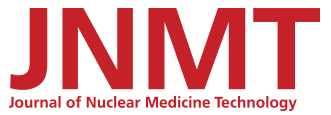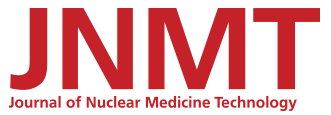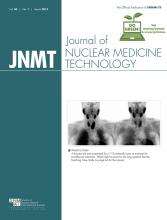Leonas A. Nalivaika CNMT, RT(N), MBA,FSNMMI-TS
Time passes quickly today with regard to everything and anything. It seems I was just elected speaker of the NCOR, yet only one NCOR meeting remains for me.
Many think the speaker runs the meeting and sets the agenda, but the job is much more than just setting the NCOR agenda: It is setting the agenda for every member out there—everyone who may be associated with the nuclear medicine community. How is this so? Some may say, “Leo, you did not call me and ask.” However, it is through your own select group of NCOR delegates that we hear of your ideas, concerns, and problems. By maintaining contact with them, you convey issues to the speaker and, in turn, to the national spotlight.
There are concerns from membership that nuclear medicine exams are going away, that other modalities are taking these from us. Members ask what the society can do for them. Well, to quote President Kennedy: “Ask not what your country can do for you, ask what you can do for your country,” and in place of your country, I will substitute not your society but professionalism.
Professionalism is interest and involvement in nuclear medicine technology. Professionalism is sharing your passion for the science, letting others know what you do. Professionalism is being a part of a group that shares the same goals and interests for the betterment of the profession. Professionalism is learning and taking on new challenges that may come. When a technologist or a whole department works in this manner, it is an eye opener—not only for the physicians who send patients our way but also for the nurse practitioners and physician assistants who now order exams. Just recently, the society published an infographic on therapies in nuclear medicine—an excellent tool if used in the proper manner to advertise. Yes, I said it: “advertise.” In today’s world, I wonder how many residents and interns know or want to know what nuclear medicine is. This is one issue I will bring before the NCOR in deciding whether to extend the infographic to other areas of imaging science. If you have any ideas on this issue or success stories, share them with your NCOR delegate or with me (lnalivai{at}msn.com).
Professionalism also tackles issues such as licensure, or ensuring that the people performing exams are trained and certified. If a state does not require certification, then who, exactly, is performing the studies—someone who was shown how to do the job and then does it? I hope my car is not being serviced in that manner. There are still several states in this situation, which is an area that the society has been tackling for a long time. It is we as a group, along with the certified technologists in those states, who should lead the fight. The tools and help are available from the society.
Professionalism is also one of the aims of the work that April Mann, SNMMI-TS president, is doing in her Quality Program, which addresses several issues. This program is not a rehashing of issues but takes and uses tools that have been put into place to tackle various problems. The program will be rolled out at both the mid-winter meeting and the annual meeting. Though the goals of this program may not be accomplished overnight, I am sure that ultimately it will meet with great success. But this success cannot be achieved unless you—all of you—become involved.
Professionalism is education and sharing of knowledge. I appreciate learning new things, reviewing old things, and teaching. When I explain what we do in nuclear medicine to an inquisitive young physician, I hope that someday a person needing a diagnostic test will receive a nuclear medicine exam because of our conversation. Professionalism is not telling a physician ordering a V/Q scan to consider ordering a CT scan instead, or suggesting that a hepatobiliary study be shunted to an ultrasound.
For example, say a technologist finds out that she will soon have to perform a certain study that she has not done in a while. She researches it, discusses it with a more experienced technologist, asks for that person’s opinion, and speaks to the attending physician. On the day of the exam, the technologist brings her “A” game, and the patient brings anatomy that is not according to the textbook. The technologist not only does her best to perform the study but also adapts the acquisitions to visualize the differences in anatomic structure. Afterward, she analyzes and discusses the study with the nuclear medicine physician, who is then able to impart helpful diagnostic information to the clinician. In short: she is a true professional, and I hope it is this type of technologist who is taking care of my parent, family member, friend, or fellow human being.
Well, being speaker, I have spoken my mind. This is probably my last article as speaker, and I wish to thank the society membership and the NCOR members for this honor. New issues always arise, and I wish I could predict and handle them before they come before us. As a society, we are a voice, and without all our voices we are not as strong. There will be new speakers, and many of you will elect your NCOR delegate or may even run for that office yourselves. Participate. It is your profession.








